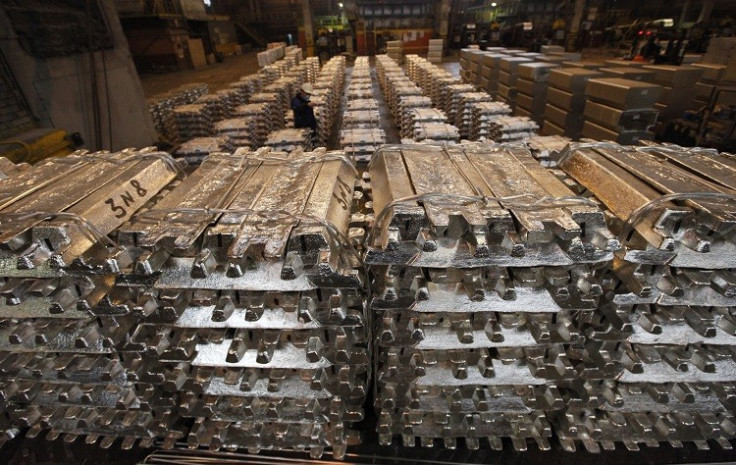US CFTC Subpoenas Metals Warehouse as 'Hoarding' Probe Gathers Pace

The US Commodity Futures Trading Commission has reportedly subpoenaed a metals warehouse firm, as it intensifies its investigation into the industry, amid claims that prices are artificially bloated by sluggish delivery times.
An anonymous source close to the probe told Reuters that the CFTC sent the subpoena after it had ordered metals warehouse firms to keep hold of all emails, documents and instant messages from the past three years.
It has not emerged who or how many of the metal warehouse businesses have been subpoenaed.
Banks trading in metals have recently become big players in holding physical assets in warehouses.
Their subsidiaries often own vast storage facilities, which also house assets that they trade, leaving the door open to potential abuse. Regulators and companies have claimed that banks, which own these warehouses, have inflated by metal market prices by limiting supply, by dragging out delivery times.
The unnamed source also added the subpoena "included more than 30 areas of interest to the CFTC."
The subpoena also allegedly said that the CFTC has a particular focus on "anything that relates to moving metal from one warehouse to another within the same company... and procedures for loading out." It also added that the CFTC wanted details of any trading based on prices on the LME, the CME Group's COMEX commodity exchange, and Platts, a unit of McGraw Hill that publishes price assessments of physical commodity markets.
Many firms relying on metals, such as soft drinks manufacturers, have complained that their costs are higher because of the purported inflation of prices. Consumers may have faced higher prices as a result.
NYT's Goldman Sachs investigation
An NYT investigation in July claimed that a Goldman Sachs subsidiary shuffled aluminium stocks around its warehouses each day, lengthening storage times and bloating rental costs, which pushed up the metal's market price and produced bigger profits.
Subsequently, the US regulator CFTC opened an broad investigation into metals warehouses.
Goldman said they had broken no laws or regulations set by the London Metal Exchange (LME), which oversees the market.
"The warehouse companies, which store both LME and non-LME metals, do not own the metal in their facilities, but merely store it on behalf of the ultimate owners," said Goldman.
"LME warehouses are actually prohibited from trading all LME products."
An unnamed Goldman executive told Politico that aluminium reserves were built up during the financial crisis and before the bank had a subsidiary which owned the warehouses.
"As the economy worsened, aluminium inventories more than tripled from the summer of 2008 to the summer of 2009 - a full year before Goldman bought the warehouse business," the executive said.
"Over the past three years that Goldman has owned the warehouse business, LME inventories are up about 20%. Hard to see how the change in metal inventory is tied to the entry of a bank into the warehousing business. During the past five years, as inventories climbed from just over one million tonnes in 2008 to more than five million tonnes today, prices for aluminium have dropped from $3000/tonne to $1800/tonne.
"So as excess supplies build up in the market, prices have dropped as one might expect."
Goldman and the London Metal Exchange have been sued in the US on the allegations being probed by US regulators.
Hong Kong Exchanges and Clearing Limited (HKEx), the owner of the LME, said that its subsidiary was named as a co-defendant in a class action lawsuit filed in the US District Court for the Eastern District of Michigan on 1 August.
Goldman was also named as a co-defendant in the lawsuit alleging "anti-competitive and monopolistic behaviour in the warehousing market in connection with aluminium prices", according to HKEx.
The lead plaintiff in the case is Superior Extrusion Inc, a provider of aluminium products and related services.
"Through an interconnected series of agreements in unreasonable restraint of trade, Goldman and LME restrained approximately 1.5 million tons of aluminium in LME Detroit warehousing," Superior Extrusion said in the lawsuit.
"LME is currently seeking legal advice in relation to the legal proceedings. LME management's initial assessment is that the suit is without merit and LME will contest it vigorously," HKEx said in a statement.
© Copyright IBTimes 2025. All rights reserved.





















